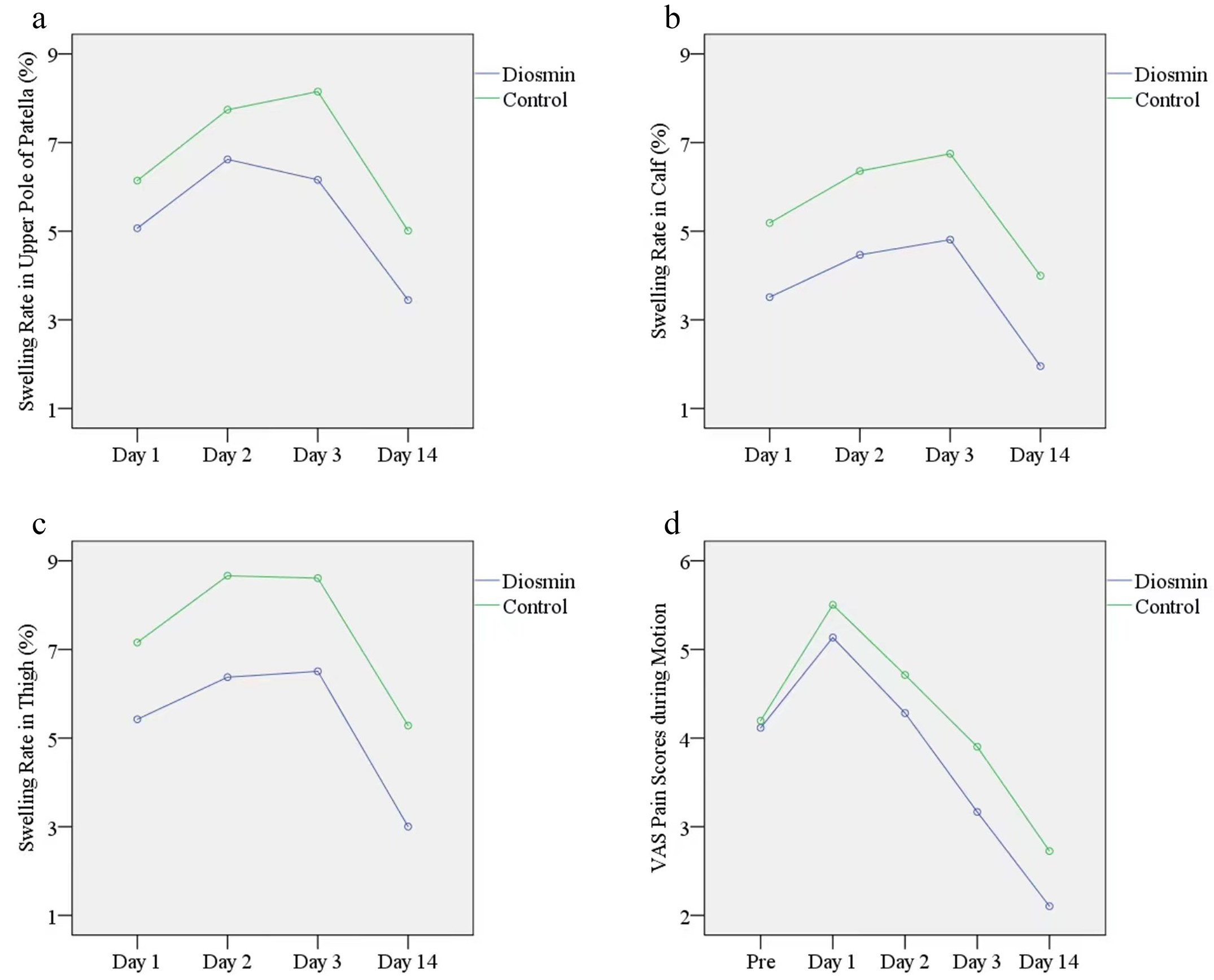Editor-in-Chief Dr. Marc Swiontkowski offers this post on a new Level I study in JBJS evaluating the efficacy of diosmin in reducing swelling after total knee arthroplasty.
Specialization within medicine and surgery is well established within medical education worldwide. The advent of the board certification movement within American medicine began some 90 years ago. Today, it’s fair to say that physicians feel more comfortable managing the care of patients within their own educational and practice experience. However, we all have a basic medical education, and paying attention to what is going on in other fields can reap benefits, not only in the direct care of patients but also in identifying potential applications of pharmacologic or surgical adjunct treatments for study in research protocols.
In the current issue of JBJS, Wang et al. report on the impact of the medication diosmin, a flavonoid derived from citrus fruits, on postoperative swelling following total knee arthroplasty (TKA). Postoperative swelling is fairly common following TKA, and the use of compression stockings and elevation can be difficult to adhere to and marginally effective. The research group identified diosmin as a component of treatment used in the management of venous insufficiency and applied it to the post-TKA setting in a well-designed multicenter randomized controlled trial. You can access the study at JBJS.org:
The study was conducted at 13 university-affiliated tertiary hospitals in the People’s Republic of China. Patients who were undergoing TKA were randomized to either receive or not receive diosmin. The final analysis included 156 patients in the diosmin group (0.9 g of diosmin, twice daily, for 14 days) and 153 patients in the control group (who received neither diosmin nor placebo).
Study Findings
The researchers found that diosmin was associated with significantly less swelling of the calf, thigh, and upper pole of the patella up to 14 days postoperatively as well as significantly lower pain scores during motion. Pain scores at rest, Hospital for Special Surgery Scores, range of motion, and levels of inflammatory markers did not differ significantly between the 2 groups. In addition, the use of diosmin was not associated with an increased incidence of short-term complications. The authors found that diosmin demonstrated a tendency to reduce the occurrence of nausea and vomiting, although the difference between the groups was not significant.
The researchers note that additional studies are needed to assess whether there may be side effects not detected within their study period and to further assess the safety of the medication’s use in TKA. It is not clear at this time whether the results of this trial will be duplicated or whether the use of diosmin will become widespread for TKA.
However, it is clear that paying attention to effective therapies outside of our own discipline can sometimes result in potentially interesting applications of therapies for conditions we seek to address.
Additional perspective on this study is provided by Elizabeth G. Lieberman, MD, in a related commentary. Read it here: Dialing in Diosmin: Promising Findings of Swelling Reduction Using Diosmin After TKA
Press release: Flavonoid supplement reduces swelling after total knee arthroplasty
JBJS Editor-in-Chief




